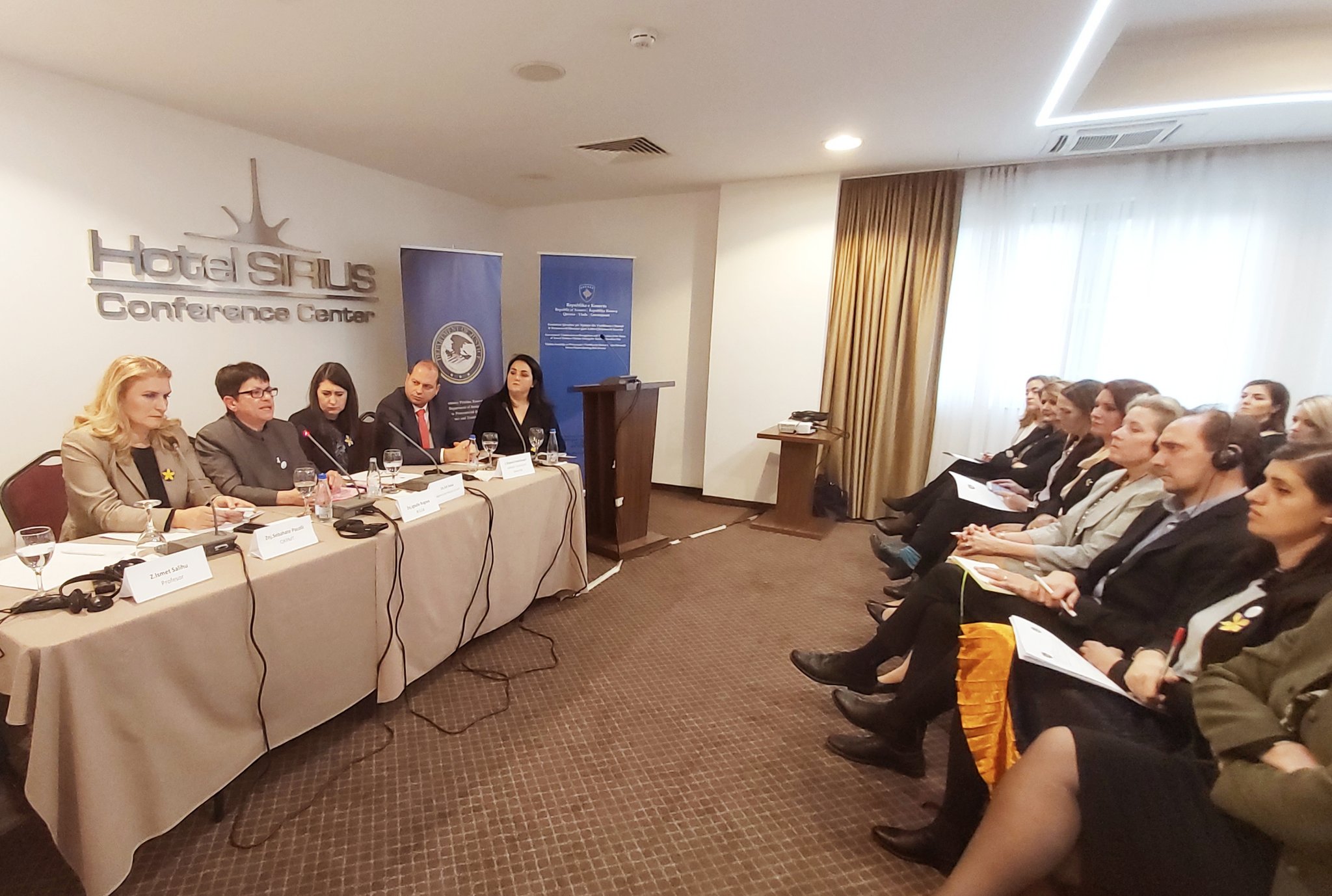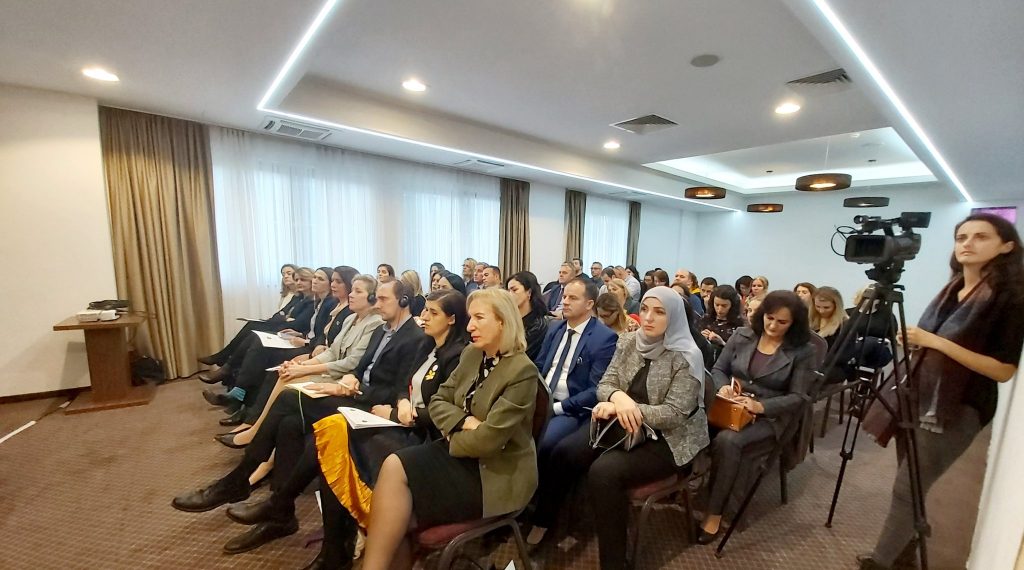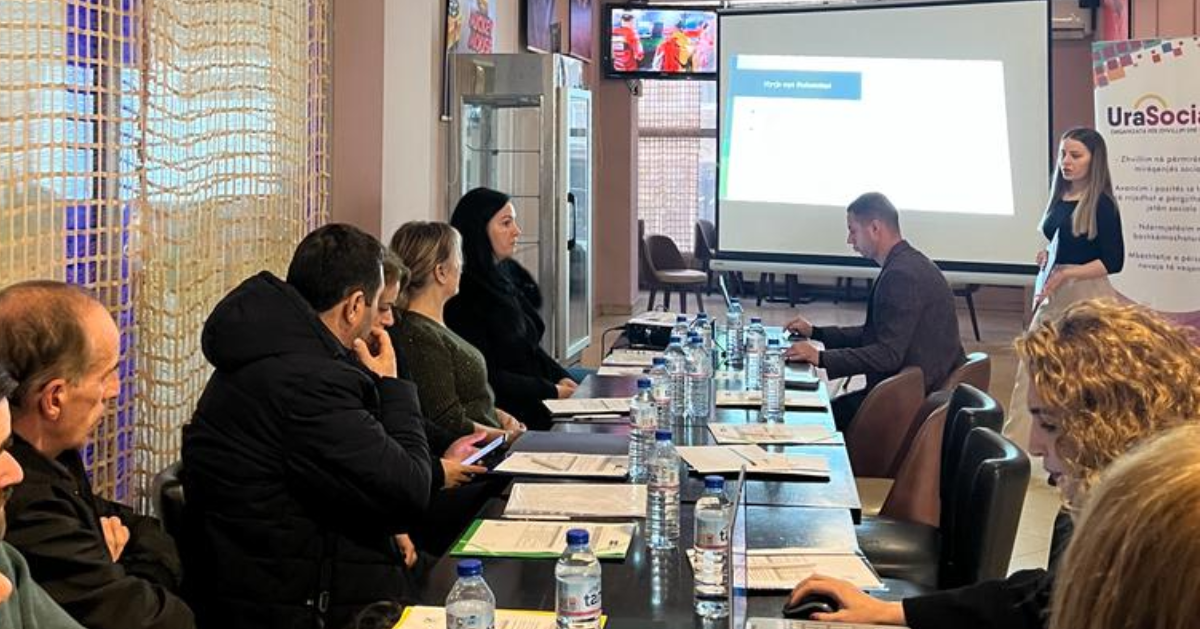Women’s organizations, Kosovar institutions, political representatives as well as international organization representatives and the diplomatic corps discussed the process of recognizing and verifying the status of Sexual Violence Victims from the war in Kosovo
The November 15th debate took place in Prishtina at the conference, Progress and Challenges, and was hosted by the Government Commission on Recognition and Verification of the Status of Sexual Violence Victims during the Kosovo Liberation War and the US Embassy Department of Justice.
The conference was organized to correspond with the 19th anniversary of the United Nations Security Council Resolution 1325 on Women, Peace and Security. Kosovo’s practices, the challenges of status verification, the importance of institutional cooperation, and fighting the stigma were all part of a two-panel discussion. During the discussion, Kosovo was cited as a positive example of a country who has successfully addressed this issue. Nevertheless, there is still a need for cooperation and ongoing progress.
The Commission has dealt with a promising number of cases that address the recognition of sexual violence victim status. 1143 applications were received, 730 decisions were made, and over 2200 cases were reviewed.
So far the Commission has made decisions on an average of 1.53 cases per day and has reviewed 4.62 cases per day. In the past 22 months the Commission has made decisions for 18.33 cases each month. These figures were publicly presented by Shpend Haxhibeqiri, psychiatrist and member of the Government Commission, at this Conference.
The Commission’s Chairwoman, Minire Begaj-Balaj, acknowledged that the verification process is difficult, but still encouraged survivors to apply for status recognition.
“In recent years treating the violence has gained global attention. The Commission started [this process] in 2018 and is taking its job seriously. The ongoing process is conducted with full confidentiality with each official representative doing their job [from start to finish] Kosovo’s efforts to [address the issue] have become a world model,” she said.
Alison Kosnett from the US Embassy, also discussed the importance of recognizing survivors of sexual violence.
“It is the responsibility of everyone, not just of the Commission, to ensure that survivors are treated with dignity and respect. Everyone has a responsibility to encourage survivors to seek the help needed for participating in society. I call you to resist stigma, in all its forms,” she said.
Igballe Rogova, Executive Director of Kosovo Women’s Network (KWN) took part in the First Panel which was titled: “The progress made in the process of verifying and recognizing the status of war victims. Practices and standards built in Kosovo, challenges of the verification and recognition process.”
“2012 was the year that woman sought to be recognized as civilian victims of war. The implementation of the Law on the Rights of Civilian Victims of War began this year. We have had many challenges, but together we faced them. Today, I want to speak with positivity so I can reach the survivors. Another challenge is the application for the verification of this status. Some people were saying: Where are these 20.000 cases? We cannot expect that all of them will apply. Not all have the possibility to apply, and [we need]to respect their decisions, and [not] put pressure on them”, said Rogova.
Vlora Tuzi-Nushi, Head of Office for UN Women in Kosovo, also praised the work of this Commission, which is the first of its kind.
“This commission was rated better than those in Bosnia & Herzegovina and Croatia. Croatia has asked for our expertise, even though it has an entire team on it. Croatia is interviewing all applicants, while Kosovo interviews only when necessary,” Tuzi-Nushi said.
Participants of this conference appreciated the Commission’s work and stakeholders expressed their willingness to support the Government Commission in dealing with the numerous and ongoing challenges. During the event, participants also called for re-allocation of the Commission budget, explaining that needs of the Commission and the Secretariat still need to be met.
The Commission, was established to work on the recognition and institutional support of war-time sexual violence survivors so its role in sustaining human rights and advocating for all citizens of Kosovo, especially women, remains vital and irreplaceable.
During a visit to the Commission in June 2019, KWN expressed its unconditional support for the transparent and tireless work of the Commission. Further information about this visit can be found HERE.








